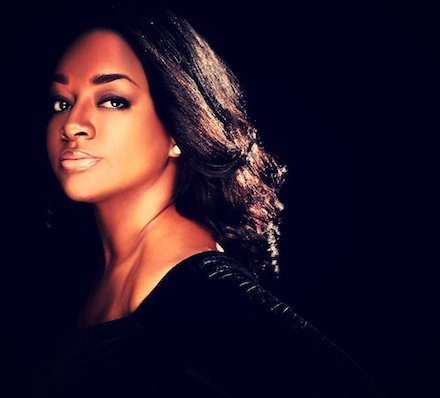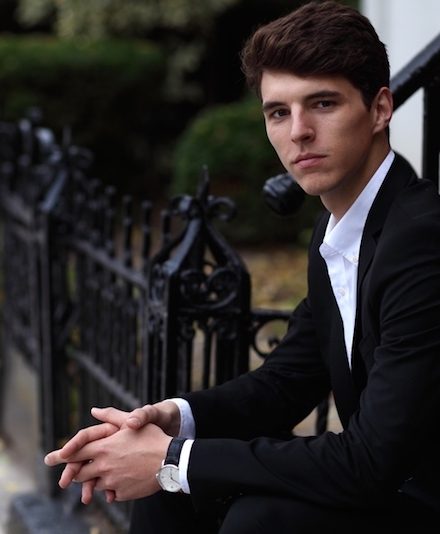(GREAT BARRINGTON, Mass.) – Bach on Parade: Voices, Strings and Keys, part of the Berkshire Bach series, features conductor Gene Wisoff and members of the Mendelssohn Glee Club, international soloists, a string quartet, and a pair of pianists performing J.S. Bach’s chamber music and vocal, string, and keyboard solos, plus witty canons by Henry Purcell, at St. James Place on Saturday, May 20, at 7:30pm.
Performers include soprano Brandie Sutton, tenor Sean Christensen, cellist Julia MinJeong Kang, and others.
PROGRAM NOTES:
The Inspiration
Gene Wisoff, long-time conductor of the Mendelssohn Glee Club (founded 1866), notes that Felix Mendelssohn provides a compelling reason to engage in an (almost) all-Bach concert. Though he was born nearly sixty years after Bach’s death, Mendelssohn studied the works of Bach, who had been all but forgotten by the time he was a student.
Due to a series of coincidences, it was perhaps inevitable [sic] that Felix Mendelssohn would help rescue J.S. Bach’s music from near oblivion. Mendelssohn’s great aunt, Sarah Itzig Levy (1761-1854), had supported an active music salon in her Berlin home where she cultivated a devotion to the music of J.S. Bach and his sons. An accomplished musician who studied the harpsichord with Wilhelm Friedemann Bach, Sarah collected J.S. Bach manuscripts, and commissioned works from Carl Philipp Emanuel Bach.
Sarah was a member of the Berlin Singakademie, which was founded in 1791 by C. F. C. Fasch to promote the traditional German sacred choral repertoire. C. F. C. Fasch was the son of J. F. Fasch, (1688-1788) a contemporary of Bach and a fellow composer. A student of J.S. Bach’s motets, Fasch led his organization until his death in 1800, when he was succeeded by Carl Friedrich Zelter (1758-1832). Perhaps on Sarah’s recommendation, it was Zelter who was later engaged by Abraham Mendelssohn to be music teacher to his son, Felix, and daughter, Fanny. Under Zelter’s strict tutelage, the Mendelssohn children studied many works by the older—and by then unfashionable—German masters, including J.S. Bach. Both Felix and Fanny joined the Singakademie chorus, and thus actively participated in the public performance of this repertoire.
Under the Zelter’s auspices, Mendelssohn, only 20 years old at the time, presented Bach’s St. Matthew Passion in 1829, thus igniting the revival of Bach’s music in Germany and eventually, across Europe. Mendelssohn was convinced of the importance of spreading awareness of Bach’s masterpieces that to him represented the pinnacle of musical art.
Felix Mendelssohn and his peers of the early Romantic period Schubert, Schumann, and others, wrote part songs for Männerchor, or male chorus. This genre, which typically extolled the beauties and traditions of nature and homeland, was popular in Germany in the 19th century and made its way to the United States as part of the immigrant experience. In 1866, a song by Mendelssohn appeared on the first program sung by this chorus and from that, it is believed, the group came to be known as The Mendelssohn Glee Club.
Bach on Parade Program
The program begins with the well-known beautiful Air on the G String from the Orchestral Suite No. 3 in D major, BWV 1068, followed by excerpts from Suite No. 1 in G Major, BWV 1007 for solo cello. It then moves Bist du bei mir (You are with me), an aria from Gottfried Henrich Stölzel’s opera Diomedes, which is also BWV 508, found in the Notebook for Anna Magdalena Bach (1725). Next is keyboard solo Partita No.3 in A minor, BWV 827, followed be the beloved Jesu, joy of man’s desiring from the Cantata Herz und Mund und Tat und Leben, BWV 147 performed by chorus and strings. After intermission, the string ensemble performs Contrapunctus No.1 from The Art of Fugue, BWV 1080, the chorus sings a little Purcell for the sheer fun of it, the piano returns to Bach for a solo rendering of the Prelude and Fugue No.16, BWV 861, and ends with all 20 musicians joining to perform a complete cantata Wachet auf (Sleepers, awake!) BWV 140.
Less familiar than the Bach works, the Catches and Canons remind us how sophisticated and clever Purcell was, and how he invented elegant and sophisticated rhythms in his music. Delight in the sometimes sacred, but usually profane pieces by the great English master, who makes art out of the humblest of materials.
Musicians include 12 members borrowed from the Mendelssohn Glee Club and an international group of string players and soloists, all under the baton of conductor Gene Wisoff.
The performance begins at 7:30 pm at St. James Place, 352 Main Street, Great Barrington, MA. Preferred seating by reservation is available online at Berkshire Bach Society. All other tickets are available on line or at the door. The concert is free to students with ID.


